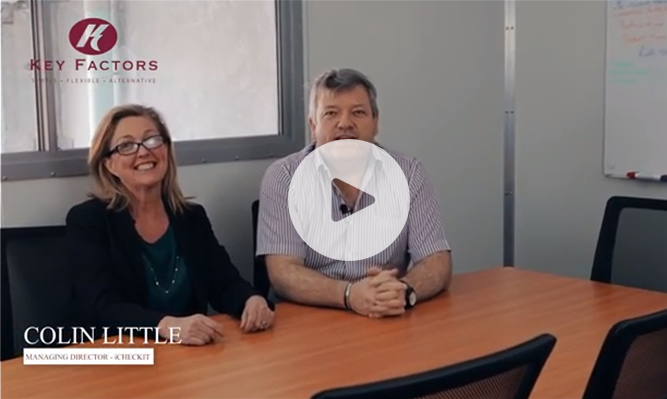Debtor Finance Interest Rates Explained
By Ram - Apr 12 2024
Positive cash flow is a massive boost for business growth. However, increasing sales can sometimes result in a significant shortage of working capital if you offer extended payment terms. One way to seal those gaps while waiting for invoices to clear is to consider debtor financing. It’s a way to release capital tied up in outstanding invoices. It enables you to use your account receivables to access fast funding and maintain cash flow.
However, like other funding methods, it comes with various costs, including interest rates, that you should understand to determine how they will affect your bottom line.
What is Debtor Financing?
When most businesses raise an invoice for goods or services, they typically offer payment terms ranging from 30 to 90 days to clear the invoice. Typically, the larger the invoice value, the more time the client gets.
Debtor financing is a business funding solution that allows you to receive an advance on unpaid invoices. This advance can be used to pay suppliers, invest in an expansion, or stock inventory, among other business costs.
This type of financing can benefit growing businesses and those with an extended cash cycle. Instead of waiting for customers to pay, you can release the capital in your sales invoices and reinvest in your business.
This funding facility is much more flexible than a business loan or overdraft. However, your funding limits are set by the number and value of invoices you raise. The more sales you make, the more credit you can access.
How Does Debtor Financing Work?
The idea of debt financing is easy for businesses to understand. You simply offer a service or product to your clients and raise an invoice for them. Typically, the business has to wait an extended period for the customer to clear the invoice.
However, if the business needs to unlock cash flow, it can send the invoice details to the debtor finance lender to verify the amount owed and the date the invoice was issued. Depending on the lender you choose, they will send you a percentage of the invoice, often within 24 hours of approval.
How Much Does Debtor Finance Cost?
Usually, debtor finance lenders don’t charge interest on the money you borrow. Instead, the lender agrees to pay the business a percentage of the invoice value funded. The percentage amount is known as the discount fee.
The actual fee charged varies depending on the debtors being funded and the value of the businesses.
Debtor Financing Interest Rates Explained
The interest rates of the transaction depend on two factors: your turnover volume and the risk associated with the invoices.
Like many financial transactions, debtor financing is also a volume-based business. You can get lower rates with a high turnover with low-risk invoices.
Some of the factors to consider when evaluating the risk of your transaction include:
- The credit quality of your invoices
- The number of customers you have
- The financial health of your company
- Industry-specific issues
The lender can impose various fees. The type and number of fees you pay depend on the lender you approach. It’s vital to understand the fees. Such fees include:
Due Diligence Fee
This fee covers the cost of performing credit reviews, filings, and other work needed to establish your company’s financing line. It is paid if you accept the financing proposal.
The cost of this fee ranges from a few hundred to a few thousand dollars, depending on the situation’s complexity and the line’s size. Ideally, larger companies or more complex situations have higher due diligence costs.
Service Fee
The service fee is charged on the total value of every financed invoice. For most lenders, the service is the main financing fee your company will pay.
The service fee rate ranges from 0.30% to 2.5% per invoice. Usually, higher lines have lower rates. The size of the fee will vary depending on:
- Size of the line
- Your industry
- Credit quality of invoices
- Special considerations
Discount Fee
The discount fee is charged on the actual advanced funds, which are usually a percentage of the invoice’s total value. Most financing companies have a base rate plus an additional percentage. The discount fee is calculated daily but charged monthly. Some proposals do not charge a discount fee, though most tend to include it.
Annual Minimum Fee
The annual minimum fee is the fee that the debtor finance company expects to earn from working with you. It is based on the projections you provided, which were used to determine the service and discount fees you are charged.
How Do the Service Fee and Discount Fee Work?
There’s no standard way to charge the service fee for debtor financing services. It depends on the lender you approach and the proposal you sign. Some proposals only charge a service fee, while others charge both service and discount fees. However, a proposal that charges both fees isn’t necessarily more expensive than one that doesn’t.
Larger companies prefer to pay most of their financing through a discount rather than a service fee. This preference is based on the fact that discount fees more closely resemble line of credit fees.
Smaller companies prefer a service fee structure because it is more straightforward and predictable. However, most lenders will allow you to negotiate how the fees are charged or split.
Final Thoughts
The best way to understand the costs of your debtor financing is to look at the proposal. It explains the different fees you will be expected to pay and how you should pay them. If you have any questions, ask the lender before signing the proposal.

